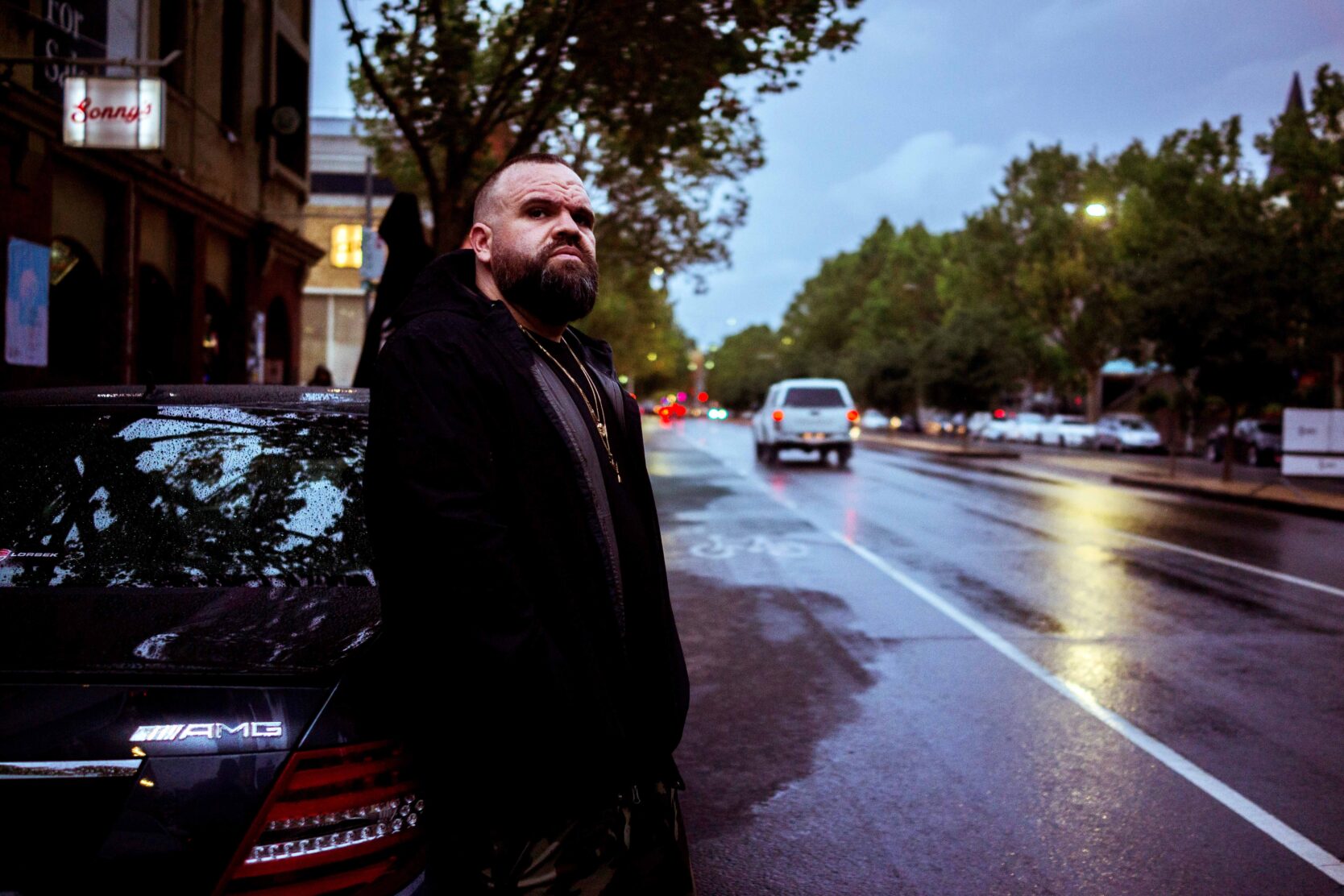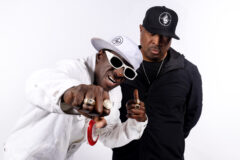As Aussies head to the polls for an October 14 referendum on changing the Constitution to establish the Voice—a First Nations body advising the Government—SPIN spoke to Adam ‘Senator’ Briggs, blackfella, rapper, writer, actor, and owner of the Bad Apples Music label.
Talk of the UN seizing land Down Under should the Voice win the vote, or of sacred nationalist piss-ups like Straya Day getting abolished when white culture falls under a black hammer-and-sickle and bleeds reparation payments have been doing the rounds big time.
I raise this with the Senator, who says, “It’s Australia. It’s littered with weird cunts.”
In his late 30s, Adam ‘the Senator’ Briggs is a man of the Yorta Yorta nation whose traditional lands are in the continent’s south-east. He’s from Shepparton, an agriculture-based city about 110 miles up from Melbourne, where he now lives.
To this blackfella, the idea of setting up an Indigenous body offering non-binding advice to the Government of the day on matters concerning Indigenous people just isn’t alarmingly revolutionary, even if the “weird cunts” are frothing at the mouth about it.
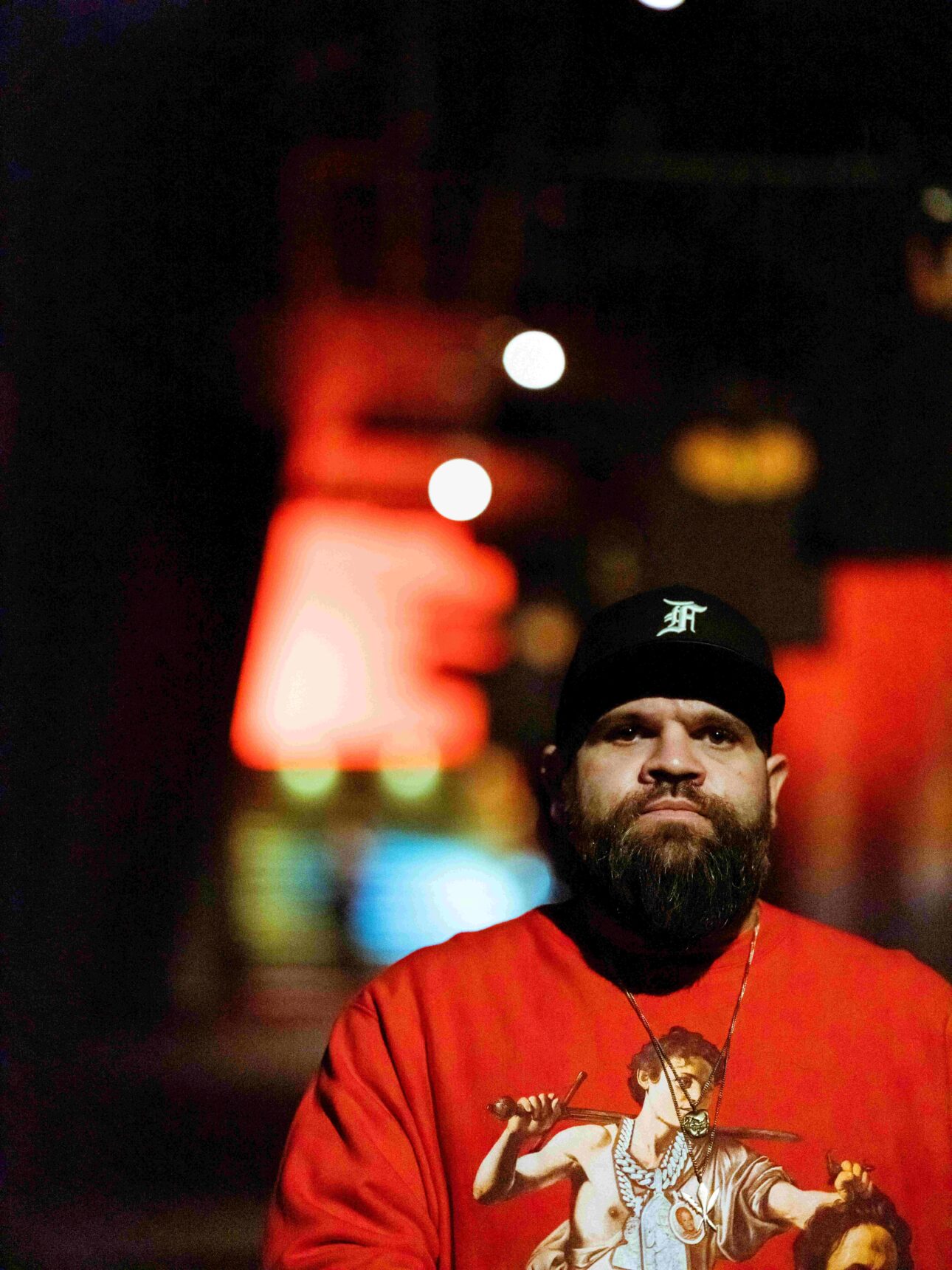
Briggs, it’s worth pointing out, delivers some of Australia’s most potent rap: songs like “Bad Apples”, a whaddaya-expect piledriver about the finger-pointing that fucked up Indigenous kids cop from a society that fucks ‘em up in the first place.
The song stands out to me not only as slamming good rap from the heart, but as a masterclass in sociology and forensic psychology. Briggs’ big delivery of big lines about kids who weren’t “raised wrong/They weren’t raised at all” builds with a take-no-prisoners approach to then climax with a dead plain, dead clear personal declaration:
They call them good for nothing, I call them cousin.
I call them brother and sister, I still love them
“Bad Apples”
If you haven’t heard “Bad Apples”, give it a spin. Then I’ll get talking with the big bloke, including about other matters, such as America (“people would come up and start yelling at me in Spanish”) and his time writing for Simpsons creator Matt Groening.
But first, dial up your volume and play this:
SPIN: Were your pants hanging off all baggy as a kid?
Briggs: Yeah, man. Everything. Every [hip hop] trend you could think of.
Did grownups around you hate rap and hate kids getting into it?
Everyone hated it.
Did you collect a lot of rap music?
Mum and dad hated it so they weren’t buying it for me, and I couldn’t buy it myself. So I’d stay up late and watch Rage [an overnight music-video show on Australia’s government-owned national TV station] and make video tapes.
Into other music, too?
The Gunners. I wanted to be like Slash, so I had to play guitar.
You play in bands?
Growing up in a country town you do anything not to be bored. I didn’t know how to make rap music, because there wasn’t a culture of hip hop in Australia. Especially where I was. So I played guitar — poorly.
Where we grew up there wasn’t a culture of anything around rap.
I’d get told that rap music is fucking American shit. Which is odd because the same cunts would then say, “Why don’t you play some country and western?”
Briggs
How’d you get traction making rap?
I left. Moved out of the country town.
Wasn’t until I moved to Melbourne and I really started to see the business and the industry [around hip hop] that I started to really craft my sound and my presence.
I did shows upon shows.
Do much battle-rapping?
A little bit, but I was more interested in writing songs than I was trying to battle. If I didn’t like someone I’d punch them in their face.
But lots of open-mic nights?
Yep.
How’d you go?
A lot of the punters would say shit like “We like Aussie hip hop. None of that American shit.” I didn’t like that. It felt odd to me. It felt racist.
And it was — it was just veiled racism. Because a few more drinks and it’s: “I don’t like that black crap.”
Was it a rough scene?
Hip hop was a blood sport. If you were whack you would get fucked up. If you were a shit rapper it wasn’t enough to be shit — someone would smack you. If you’re on stage and you suck, someone’s checking you.
One time in Melbourne, early on in my career, someone threw a drink at me while I was performing. They didn’t know that I had my whole squad in the crowd. That was the end of their night.
Is that a Melbourne thing?
It’s a hip hop thing.
And in the rugged ‘90s, like M.O.P.—Mash Out Posse—they were known for that. Like KRS-One throwing P.M. Dawn off stage. Know what I mean? It’s a blood sport, man.
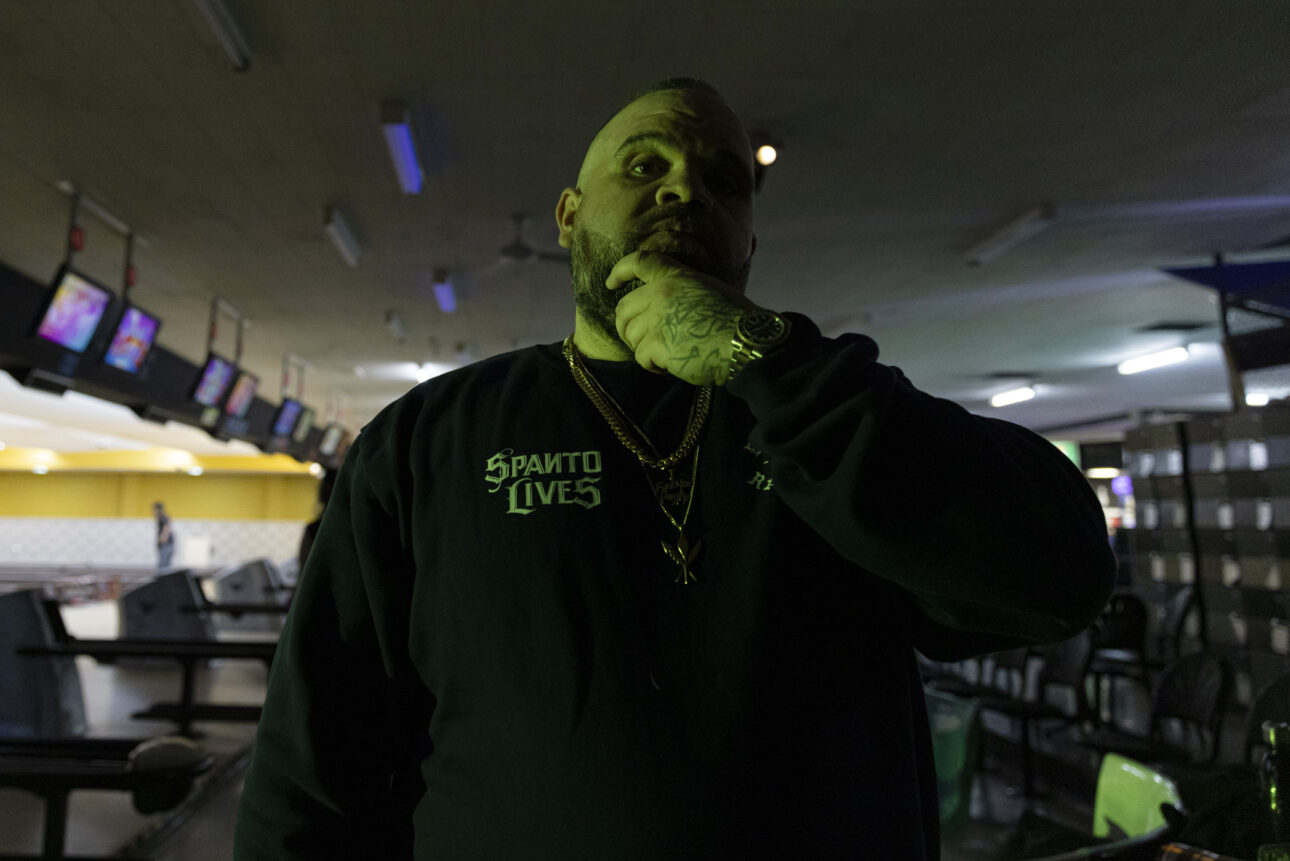
And then you got the race thing on top.
I cop hate all the time, man. I’m used to it. But they rarely say it to my face.
So you built your work differently to the scene around you?
One thing I didn’t like about Australian hip hop was Australian hip hop.
The majority of what was coming out was trash. It was toothless and whack. It had no soul. It had no purpose. And I was like, “What are we doing here?” I was growing ever more tired of the nothingness of these hokey songs.
It is not to say these guys are bad people or anything like that. It’s just that they can only speak to their experience and if their experience is just party and jokes, then that’s what they’re gonna do. But for me, that wasn’t rap music.
The rap music I grew up on was scary. It was Public Enemy. It was N.W.A. It was Ice-T.
Purpose, mate. It had purpose.
So the whole point of “Bad Apples” was to be the antithesis of all the shit I was hearing.
To me that song is a masterclass in psychology and sociology, but without it sounding in any way academic. You take no prisoners. Strong lines like how people say Aboriginal kids are raised badly, but actually they’re not raised at all. How their parents have lost it—they’re absent or trashed—and how society shuns them and–
The point of “Bad Apples” was about people that point their finger and say, “Look at these bad kids.” And it’s like, let’s turn it around and ask, “What the fuck is your involvement? What do you do?” ‘Cause so many of these people will just be like, “Just look at ’em!” and then they drive off. You know? Yeah.
I often get detractors saying, “How does this help aboriginal people?” All this rah rah rah from white people. And I’m like, “How do you help aboriginal people?” ‘Because I’m them. I grew up in this. I go home to this. I am this. I’m a product of this.I am this.
It’s a big tell in Australia’s naivety and their relationship and the dialogue they have with the oldest living civilization on the face of the earth.
Fucking point the finger and drive off.
I read you didn’t like school much.
Nah, bro. Shepparton High was racist. Hated it. And they hated me, so it was perfect.
Have any Indigenous teachers at school?
No.
What was the racism like? Not much mixing, or straight-out–
Just attitude, bro. Like, they didn’t want you there. They didn’t care.
People mistake what racism is. They think it’s name calling, but racism is exclusion. So where I grew up, we’re excluded from society, we’re excluded from the economy, we’re excluded from ownership, we’re excluded from health.
That’s what racism is: the exclusion of blackfellas from these facets and from prosperity — from all these cornerstones that make generational wealth.
And Australia has a really naive approach to history. It cherry picks what it likes and excludes the rest. Even with those people saying, “I like hip hop. I like Australian hip hop, though.”
They don’t want to have to do the work of understanding black people. It’s too much work.
My old man’s pretty heavy in the bureaucracy of Aboriginal affairs and has been for the last 40 years. Recently he had a conversation with an old guy from our town, and this old guy had tears in his eyes talking to my old man, talking about how his grandfather used to go out and shoot Yorta Yorta people. For sport.
That’s just the reality. That’s just where we’re from.
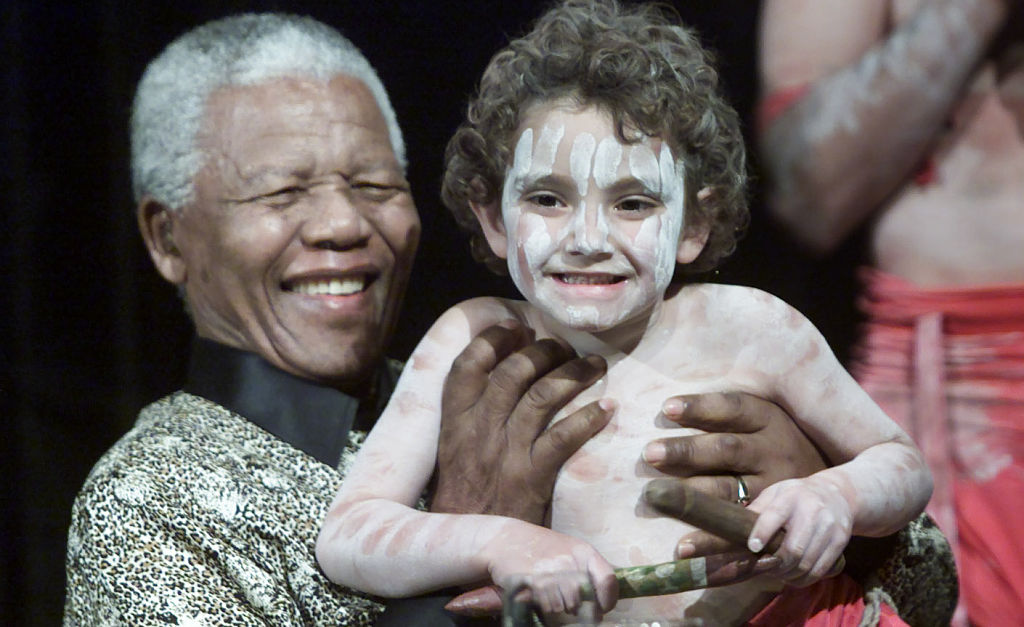
I’ve heard Indigenous academics talking about a shyness common to colonized people, which I imagine is the opposite to the strutting, bold, hip hop thing. Does that ring true?
For sure. It’s real. I’ve got horrible anxiety. Have since I was a kid.
Because even within our community, you’re told to keep your head down, you know?
So the feeling of putting yourself out there on a limb in front of everybody, not just the community, but in front of the world, is fucking hard.
And they’ve done the research—they’ve done the polls—and three or four outta five Australians don’t like blackfellas. They have bad connotations of Indigenous Australians.
So imagine that. Not only do you wake up in a country that doesn’t want you there, now [via hip hop] you are drawing attention to yourself: telling them facts.
But you throw it to the wind, man. Fuck it. What are you gonna do? Not? You either do it or you don’t. I do it.
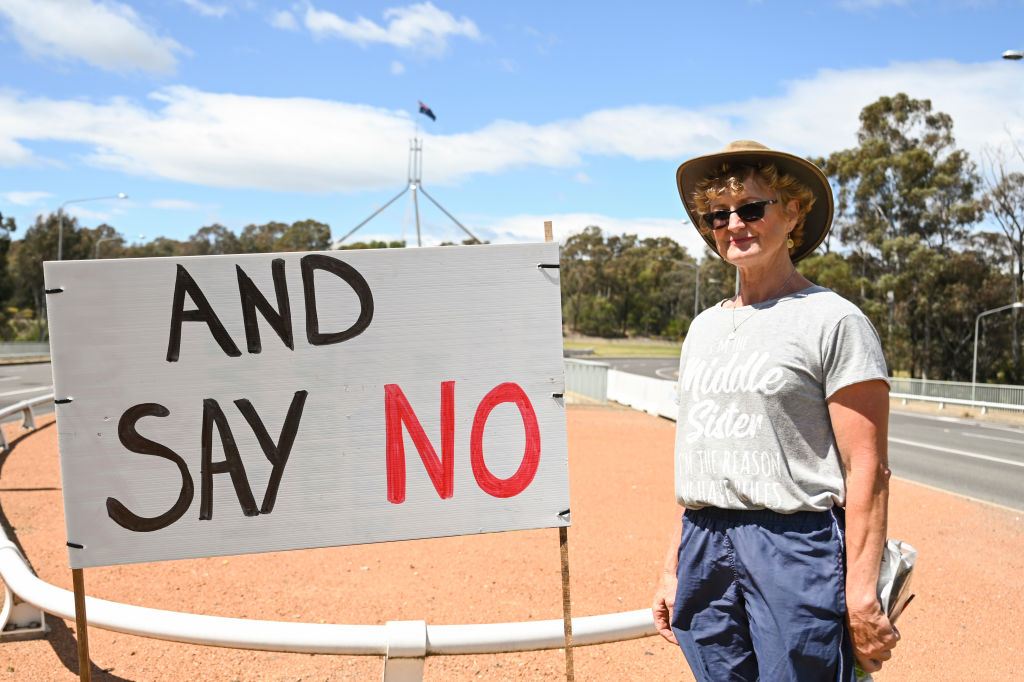
SPIN: What’s your take on the referendum that the Government has put forward to establish the Voice?
My take on it is — why not?
I don’t look at it as if it’s going to be the fix. It’s a question of our worth — of blackfellas’ worth.
Not polling well, though.
It’s funny, you know. To get any black, Indigenous, First Nations progress is such a task to get over the line. To get anything.
And among blackfellas there’s a healthy mistrust of the government, which is valid, but that mistrust is so emotional, so heightened, that it’s easily manipulated by other nut bars.
Lot of people running some strange stories about what a Yes vote might lead to.
It’s Australia. It’s littered with weird cunts.
Briggs
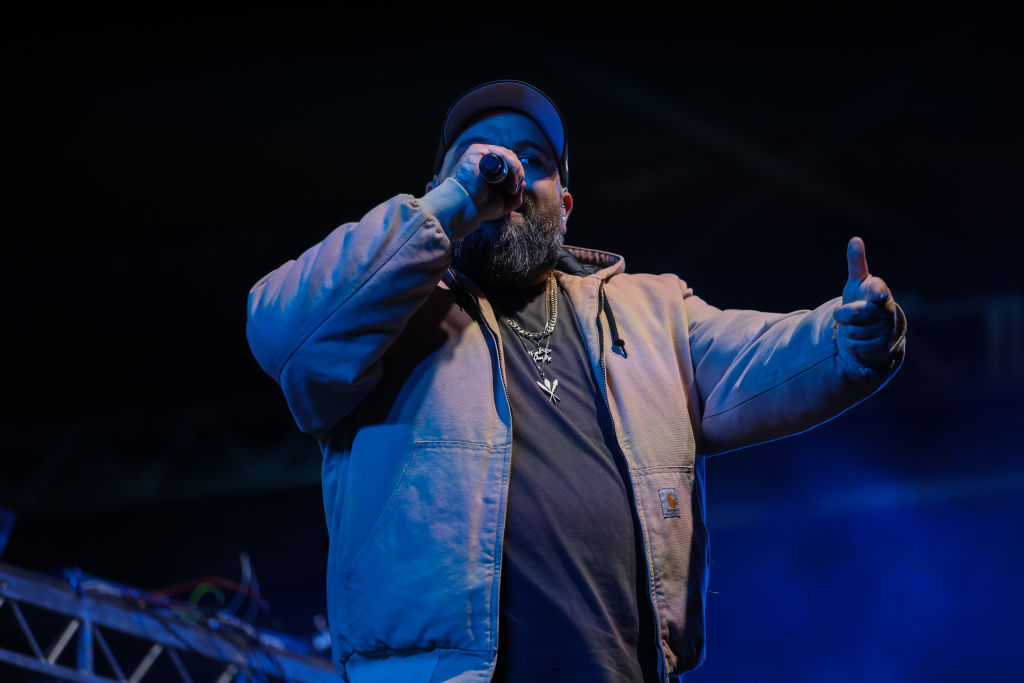
You release Indigenous artists on your label, Bad Apples Music. And you’ve looked for Native American artists, right?
Yeah, man. When I went to the States and I was doing these things at Apples, I would ask people “Who are your First Nations artists? Who should we talk to? How can I link up? Where do I need to go?”
Everybody would just say “A Tribe Called Red.”
And I was like, “Yeah, but they’re from Winnipeg.” A Tribe Called Red (now Halluci Nation) was just everybody’s go-to. So I explained we’ve got a record label called Bad Apples in Australia where we’ve put out records of blackfellas, and from New Zealand, and we’ve started to do releases of snotty-nose res kids from Canada.
I told ‘em we’re trying to expand and there must be a Bad Apples here — like I can’t be the only cunt on the face of the earth doing this.
Did you find anyone?
No. I’m still looking.
In the States, did you much of a feel for the racial politics here?
I remember my first interactions with Americans — in Australia. They’d be like, “So what are you?”
And I’m like, “I’m Aboriginal. Native.”
And they’d say, “What’s that — like Mexican?”
I’d be like, “Yeah, I guess.”
When I first went to the States, back in the 2000s, people would come up to me and start yelling at me in Spanish. In New York they thought I was Dominican or Puerto Rican. In LA they thought I was Mexican.
Back when Black Lives Matter kicked off I was asked to be part of the conversation around it on Zoom. For a global sense.
I kind of threw a spanner in the works ’cause I was like, “How does Black Lives Matter relate to First Nations people in the States?”
Because that’s the parallel I draw. In Australia we are black, but there [America] we’re not,
They have Malcolm X Boulevard and Martin Luther King’s birthday [holiday] Black History Month, but to the best of my knowledge, there’s no Sitting Bull Day.
Well if you ignore Native people they don’t exist.
Know why that is? Because the biggest threat to wealth is real estate, and they know how they got the real estate.
That’s one of the arguments against the Voice, isn’t it? That Aborigines will take back land?
That’s always the big fear of dumb white Australians. “They want to get the land and rah rah rah.”
Well, ‘cause you know how you got it, you fucking tripper. You know exactly how you fucking obtained this shit.
There’s always this notion of a fair go in Australia and I work, you know, that’s why so many white dudes get their back up about white privilege, because they feel like, “I work hard.” The biggest insult you can give to some fucking Darren from down the street is that he’s a lazy cunt. It’s a terrifying notion.
But the biggest threat to wealth and keeping wealth is the land — the land which we all have to pay rates [property taxes] and we all have to pay parking. And, you know, where they rip up their minerals.
They’ll sell a million dollar block, and it’s just them trading money in the Monopoly game, but they know how they got it. They know the reason. There’s a stickier conversation around that, so it’s easier to not talk about it. For colonizers, it’s easier to not talk about the right to land, the right to water, you know, the right to a lifestyle.
I’m not that versed in Native American politics, but I can definitely draw parallels to the experience.
You worked as a writer for Matt Groening on Disenchantment. How was that?
A pretty wild experience. But for legal purposes I didn’t do any writing in the States. I did not write one word there.
Where didn’t you do it?
I was staying in West Hollywood, and definitely not working in Malibu.
What was the typical non-working day?
Rock up at 10, order lunch, sit around a table and discuss what’s going on in the world for five or ten minutes, and then get into the boiler room of an episode — punch out plot and jokes and character drive and storylines with a scribe writing down everything we’d say.
It was crazy sitting around with the best of the best from the Simpsons and Futurama. I’ve got Matt Groening to the left of me, and I’m sitting across the table from Josh Weinstein and Bill Oakley.
I’m very fortunate that I got to not work with my heroes.
What are you working on now?
I’m writing my own animation. It’s based on my life but if I’d never left Shepparton.
And music?
I’m working on a new album. Getting back to harder. More in your face. More of a problem. Very aggressive. Offense is defense. Defense is offense. That’s where I’m most comfortable musically.
I do like making nice little songs: nice, fun, slow, happy songs sometimes, but where I really get it done is when I’m pissed off.
Briggs
Good — because that pseudo R&B and autotune stuff just doesn’t have the same punch.
And I sound kinda stupid doing it.
Postscript: the Voice referendum was defeated. Voting is compulsory in Australia, and more than 60 per cent of voters said No.

